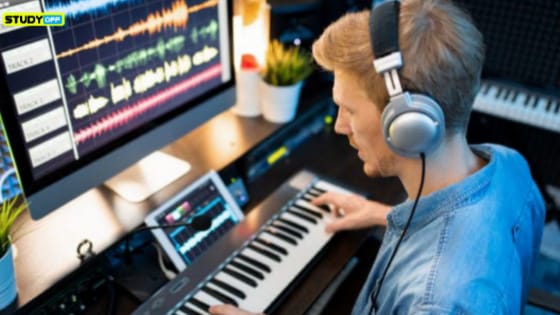Record Companies File Historic Cases in Federal Courts in Boston and New York Against Suno and Udio for Responsible AI, correspondingly
Control over works by artists, songwriters, and rightsholders would be ensured through RIAA-managed litigation.
June 24, 2024, Washington, DC The Recording Industry Association of America® (RIAA) today announced the filing of two copyright infringement cases against Suno and Udio, two multi-million dollar music creation businesses, for their widespread unauthorised copying and use of copyrighted sound recordings.
The United States District Court for the District of Massachusetts received the lawsuit against Suno, Inc., the company behind Suno AI, while the United States District Court for the Southern District of New York received the case against Uncharted Labs, Inc., the company behind Udio AI. The plaintiffs in these cases are record labels, such as Warner Records, Inc., Sony Music Entertainment, and UMG Recordings, Inc., that own rights to sound recordings that Suno and Udio have violated. The allegations extend to recordings made by musicians from many eras, genres, and styles.
According to RIAA Chairman and CEO Mitch Glazier, “the music community has embraced AI and we are already partnering and collaborating with responsible developers to build sustainable AI tools centred on human creativity that put artists and songwriters in charge.” However, cooperation from developers is a prerequisite for our success. The promise of truly inventive AI for all of us is shattered by unlicensed businesses like Suno and Udio, who assert that it is “fair” to replicate an artist’s life’s work and use it for their own profit without permission or payment.
“These are straightforward cases of copyright infringement involving massively unauthorised sound recording copies,” said Ken Doroshow, Chief Legal Officer of the Recording Industry Association of America. Instead of establishing a solid and legal foundation for their services, Suno and Udio are trying to conceal the entire extent of their violation. The purpose of these cases is to stop Suno and Udio’s flagrant infringement and to uphold the fundamental guidelines for the responsible, moral, and legal development of generative AI systems.
The lawsuits ask for the following: (1) declarations that the two services violated the copyrighted sound recordings of the plaintiffs; (2) injunctions prohibiting the services from violating the plaintiffs’ copyrighted sound recordings in the future; and (3) compensation for the already-committed infringements.
Important Accusations
While each lawsuit has its own unique set of facts pertaining to the defendants’ unauthorised reproduction of plaintiffs’ sound recordings, they all share a basic set of accusations about Suno and Udio’s development, training, and use.
You may access the Suno complaint here and the Udio complaint here.
You can get a graphic summary of the claims about iconic music copying here.
The following are quotes taken from the complaints: “Like any other business, AI startups need to follow the rules that safeguard human innovation and originality. Nothing spares AI technology from copyright laws or justifies AI enterprises from adhering to regulations. These legal actions aim to uphold these fundamental ideas. (Complaints · 2.)
“AI holds both promise and danger.” AI’s capacity to permeate the processes of music production, distribution, and invention increases with the development of increasingly potent and complex AI tools. Generative AI tools have the potential to help people create and produce new and unique music, provided they are developed with the consent and involvement of copyright owners. However, those same tools pose a long-term and irreversible threat to recording artists, record labels, and the music industry if they are developed carelessly and disregard basic copyright protections. This will unavoidably lower the calibre of new music that is made available to listeners and weaken our shared culture. (Complaints · 3.)
The process of creating and running [these services] starts with copying and consuming large volumes of data in order to “train” a software “model” to provide results. For [these services], this approach entailed consuming copies of the most well-known sound recordings made over decades into order to produce outputs that mimicked the characteristics of real human sound recordings. (Complaints · 7.)
“The synthetic musical outputs of such [services] could saturate the market with machine-generated content that will directly compete with, cheapen, and ultimately drown out the genuine sound recordings on which the [services] were built when those who develop such [services] steal copyrighted sound recordings.” (Complaints · 4.)
Because the core of [these enterprises] has been the unauthorised use of copyrighted sound recordings, [they have] purposefully concealed the precise content of the copies they have made. This is not shocking. Ultimately, providing an honest response to that question would require acknowledging deliberate copyright violations on an almost unfathomable magnitude. (Complaints · 8.)
It is evident what [these services] are trained in, of course. [They] integrated Plaintiffs’ copyrighted sound recordings into [their] AI model[s] by mass copying them. The only way [these] product[s] can function as they do is by replicating enormous amounts of audio recordings made by musicians from all genres, styles, and historical periods. (Complaints · 9.)
“[These services] are subject to copyright rules that safeguard works created by humans. They are not permitted to copyrighted works for commercial use without permission, just like any other market participant. Disregarding this fundamental idea, Plaintiffs’ copyrighted sound recordings are rapidly and severely damaged by [their] unauthorised duplication, which also compromises their integrity. These services are producing music so quickly and in such a large volume that they run the risk of taking over the market with AI-generated music and overall undervaluing and replacing labour produced by humans. (Reports · 12.)
By asserting fair use, [the services] are unable to escape responsibility for [their] deliberate copyright infringement. Although the fair use concept encourages human expression by allowing the unrestricted use of copyrighted works in specific, limited situations, the services they provide offer imitation machine-generated music rather than original works of human ingenuity or expression. (Complaints · 14.)
“Since their introduction, the services have disregarded copyright holders in the music industry in an attempt to become the leading artificial intelligence song generation platform. By infringing upon copyright holders’ rights, neither [these services] nor any other generative AI startup can be permitted to move closer to this objective. (Udio ¶ 91, Suno ¶ 82.)
Support for the Music Community
The following groups and people are in favour of this initiative to safeguard creative works and create ethical, legal AI technologies that encourage and expand human creativity.
Dr Richard James Burgess, MBE, President and CEO of the American Association of Independent Music (A2IM): “Songwriters, record companies, and independent artists contribute greatly to culture, yet they frequently bear the brunt when services expand by using their creations without authorization or payment. Together with the music industry, we will fight for the rights of creators against unscrupulous companies like Suno and Udio who seek to misappropriate, steal, and make money off of the life’s work of gifted musicians and authors. In our ideal future, innovation is driven by the human spirit rather than being subjugated by it.
“The American Federation of Musicians is very concerned about the theft of our members’ instrumental sound recordings that are copied and used by artificial intelligence without permission,” said Tino Gagliardi, International President of the American Federation of Musicians of the US and Canada. The rights of musicians and artists whose creations serve as the basis for digital duplication must be respected. These rights include permission to use their music, credit, and just recompense. We back the RIAA’s legal action against Suno and Udio, which aims to outlaw the unauthorised exploitation of musicians’ copyrighted compositions.
“Artists deserve to be respected in the marketplace and protected from services like Suno and Udio, which undermine the very principles on which copyright was founded,” says Jen Jacobsen, Executive Director of the Artist Rights Alliance (ARA). These services are violating the rights of creators and undermining the value of art itself by engaging in widespread theft in order to train their models and flood playlists with machine imitations. ARA is appreciative that these lawsuits have been brought in an effort to create a music industry that genuinely helps fans and artists.
Black Music Action Coalition (BMAC) co-founder, president, and chief executive officer Willie “Prophet” Stiggers says, “Real music comes from real life and real people.” We need to control the businesses that provide low-quality copies, knockoffs, and shortcuts that are supported by multibillion-dollar investors. I implore the courts to acknowledge that authorization is needed before “training” AI on copyrighted music. It is imperative that songwriters and artists take ownership of their own work, narrative, and message. The Human Artistry Campaign was founded by Black Music Action Coalition, and we support this cause together with other advocacy organisations.
“Obtaining consent prior to utilising copyrighted works in AI models is a founding principle of the Human Artistry Campaign and a fundamental pillar of any notion of “ethical” or “responsible” AI,” says Dr. Moiya McTier, Senior Advisor for the Human Artistry Campaign (HAC). It is offensive to individual human artistry and an assault on the autonomy of all authors, artists, and creators to train AI systems on music that has been stolen.
Alliance of Music Workers (MWA): Indie musicians are represented by the Music Workers Alliance. We fully support the RIAA’s case against Suno and Udio because we feel that Generative AI systems’ absorption of our recorded material without our permission, credit, or payment violates our copyrights and endangers the careers of innumerable musicians. These companies basically force us into a “training” job that we never agreed to by stealing our work to generate sound-alikes. With their more costly subscriptions, users are able to commercialise the outputs, which puts us in unfair competition with an endless supply of copies of our own work that are published without giving credit or acknowledging our part in their creation. Nevertheless, these copies have the potential to displace us in a variety of markets, including record production, film, video, and television scoring.
It is blatantly unjust that we do not receive any of the money that these companies make from the selling of service subscriptions. Because the DMCA Safe Harbours under Section 512 have not been regulated, recording musicians have already suffered one significant devaluation of their work. Allowing our unapproved work to be utilised in the production of AI-generated “music” will further diminish the value of our work and drive many people out of the industry. We hope that the court will step in to stop this exploitative infringement before the harm to our community, the copyright concept found in the Constitution, and our shared culture becomes irreparable and catastrophic.
The case against Suno and Udio is fully supported by the National Music Publishers’ Association (NMPA), according to its president and chief executive officer, David Israelite. Anyone listening to the music produced by either platform may tell that they are both obviously trained on copyrighted material. The rights of artists as human creators are fundamental to this case, which sets a precedent. These technologies are currently in the hands of millions of users, which amounts to innumerable infringements on actual musicians. We will keep supporting the RIAA in their efforts to protect artists.
CEO of the Recording Academy, Harvey Mason Jr.: “Genuine artificial intelligence should not be any different from the useful tools that new technology has been used by musicians for generations.” We support the RIAA in taking action against services that seek to improperly profit from the creators and iconic sound recordings that make these services function. AI companies must properly obtain permission from and compensate creators when using their works in order to maintain the trust of artists and fans alike.
SAG-AFTRA National Executive Director and Chief Negotiator Duncan Crabtree-Ireland: “Music created by humans has to be safeguarded.” The widespread recorded music infringement committed by the defendants, which mostly consists of the artistic creations of SAG-AFTRA members, is unlawful, unethical, and has to be stopped. SAG-AFTRA fully endorses these assertions.
composers of North America (SONA) Board Member Dina LaPolt: “These cases reveal the widespread and unfair exploitation of composers’ and artists’ recordings by financially supported companies such as Suno and Udio, who do not follow the law and do not compensate creators for their labour. This is a significant battle that affects all those involved with the music and entertainment industries and could have a bearing on the direction that human art takes.
“AI has the potential to bring great benefits to the music industry, both for music makers and consumers,” says Michael Huppe, president and CEO of SoundExchange. Numerous AI firms appropriately collaborate with the creative sector, acknowledging their fundamental contribution to algorithm training. However, the music industry cannot support companies that profit from the widespread piracy of creative works without credit or licence.







